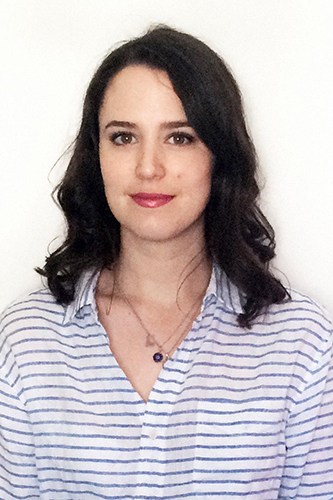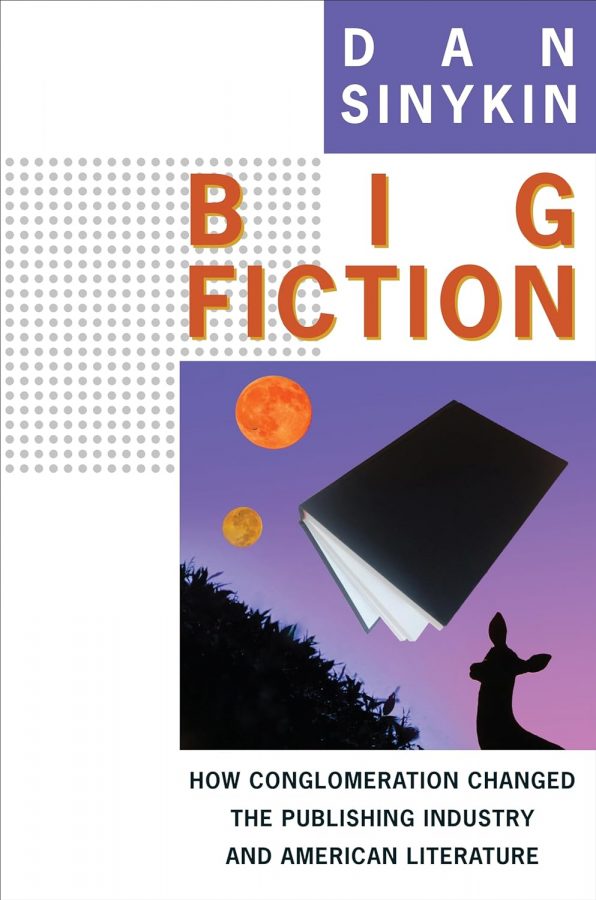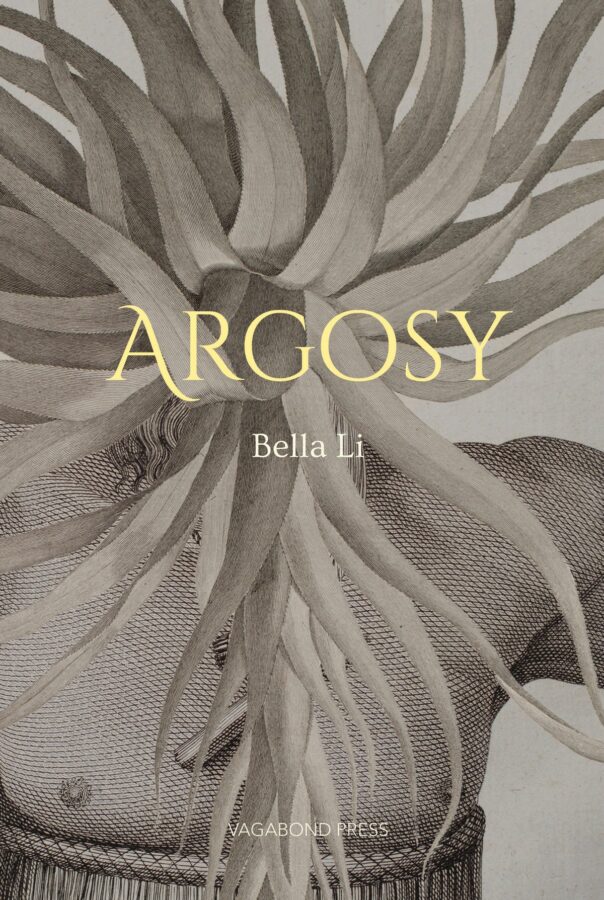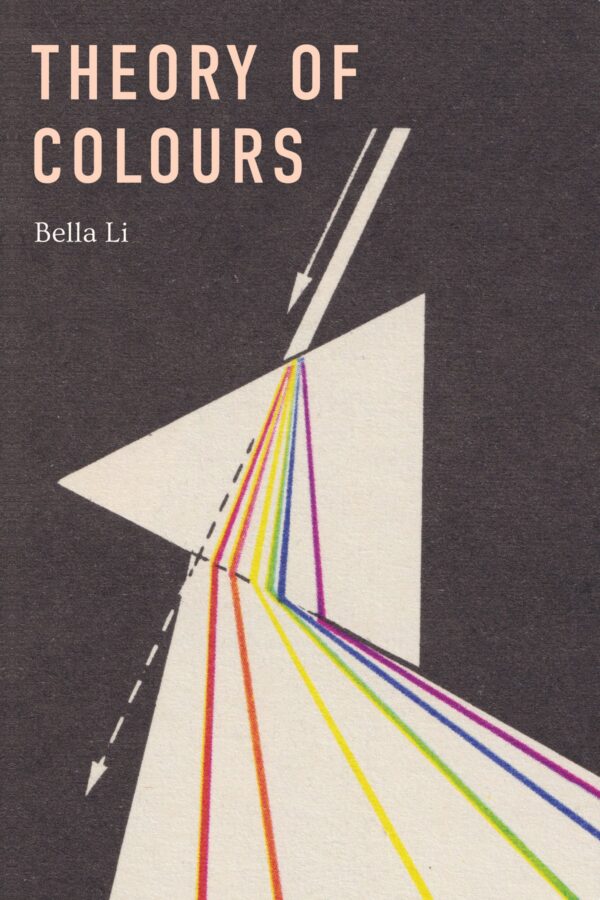The temperature is in the mid-thirties: a dry, polluted, Beijing heat that the air-conditioner in the room is only just making breathable. Sitting next to me on a single chair is a man in his forties, wearing thick rimless glasses, a polo shirt, shorts and sandals. He is jabbing his index finger in my direction like a conductor without a baton. My three months of Mandarin, dutifully copying pages of characters and reciting phrases, mean I can pick out the words ‘she’, ‘is’, ‘has not’ and ‘Australia’, but nothing more. Also present is a colleague of his from the Chinese literary journal Contemporary, who has been pretty quiet so far, and someone from the rights department of the Peoples Literature Publishing House, who is translating for me.
Here is roughly what the man was telling me: Australian writers are too comfortable to have anything to write about. As editor of one of the most prestigious and long-running literary journals in China, he has just published a short story that centred on a patricide incited by poverty: a young man is struggling to feed his family, so he comes to the horrific decision that he must kill his elderly father to ensure his children don’t starve. Could that story be written by an Australian? he asks me.
I admit that I have never received a submission that dealt with poverty-induced patricide.
He follows up by asking me what sorts of issues there are for Australians to explore in literature, since everything is so easy and the people aren’t starving. I answer that there is depression and racism and Indigenous welfare and the politics of immigration.
These are just mental things, he says. The characters are not in imminent danger of starving to death. That is mostly true, I admit. And I start to argue for different kinds of literature, with different intentions, but he interrupts and says that Australian writers are probably just like Alice Munro. I had really never heard someone scoff at the name Alice Munro, but I had also never climbed the Great Wall or been called a socialist, so it was to be a trip of firsts.
In mid-July, I travelled to China on an Editorial Professional Development grant funded by the Australia Council for the Arts. I came to learn about local publishing. The scene I am recounting took place in the offices of the journal, which is published by the state-owned People’s Literature Publishing House – one of the oldest and most prestigious publishers in China – where I had a residency for a fortnight. It has an impressive backlist of classics and a front-list that ranges from what they refer to as the Chinese Game of Thrones to literary fiction dealing with homelessness. Beijing is so polluted it looks like the set of an opera, gauze obscuring buildings in the middle distance. The office is in a run-down old building. There is a teenage security guard out the front, who spends the day scrolling through his phone, an oversized uniform hanging from his shoulders and an official cap propped on his head. To the left, there is a door that is locked and bolted. I was told that this was the office of Mao’s publisher, but it has been shut down. The glass cabinet in the entryway has one blank side – presumably emptied of the Mao-publisher’s books. On the right side are Chinese bestsellers and translations of J. K. Rowling and Dan Brown.
Aside from the smoking in the corridor and the finger scanner used to clock on and off, there are many similarities with an Australian publisher. The editorial staff are primarily female, university-educated and passionate about their authors. There is a higher proportion of male staff in design and distribution. People like to talk about food well in advance of lunchtime.
One of the greatest differences between the industries in the two countries is the fact that the Chinese government controls the issue of ISBNs. This means that for a book to be sold in a bookshop, it has to be published by a state-owned publisher or co-published by a private company in conjunction with a state-owned publisher. This is, in part, the reason why there is little in the way of self-publishing and why online publishing is so popular. There can be a stigma attached to self-publishing in China, as in Australia. The assumption is that the self-published work was not good enough for a company to invest in. But editors seemed open to finding new writers as a result of their online success. One young editor I spoke to told me that she had published several books that she had discovered online, and that an author with a significant online following had a head-start when it came to marketing and publicity.
China and Australia are roughly the same size, but with nearly 100 times our population, distribution in China is made easier by the simple fact of greater population density. In poor and rural areas, there can be difficulty reaching customers, but on the whole the transport systems seem much better integrated than in Australia. Around 410 000 new titles are published each year, so attracting attention is a difficult task and publishers in China seem to use the same techniques as Australian marketing departments: a mix of social media, advertising and author appearances. The holy grail is the same in both countries: word of mouth.
There is one other tool that Chinese publishers exploit to separate their books out from the masses of titles published every year – embellishments. Belly bands, spot UV, foil, deckled edges and embossing, which are used sparingly on Australian books, can appear all at once on a Chinese title, since production costs are low enough to make such beautifully produced artifacts economical.
I had never been called a socialist before, but it happened on my first day in Beijing. Over lunch, it arose in conversation that in China editors’ incomes are tied to their books. If their books do well, they receive a bonus – I was later told this could be as much as their annual salary over again – but if a book loses money they don’t get a bonus, and in some cases their salary the following year will be reduced to cover some of the losses. When I said that Australian publishers are paid the same regardless of the success or failure of the books they commission, I was told: ‘Well, that’s socialism: the same for everyone.’
This relationship between the editors’ output and remuneration has an appreciable effect on their workload. In Australia, an editor with a trade publisher, where they do the editorial work in-house, might work on around ten books per year. In China, the load is thirty books a year. This means, necessarily, that the amount of time given to each book is significantly less than is the case for editorial input in Australia. There are other, cultural reasons for this. One is that in China it would be disrespectful to send authors notes on what could be improved in their work. Another is that there is not a tradition of editorial input, as there has been for the last century in Western publishing houses.
Perhaps because of the number of titles each editor works on, there is not the same degree of loyalty between authors and editors. Of course, there are some authors and editors who are very close, but it is quite common for authors in China to jump around between publishers for different titles. Multi-book contracts are relatively rare and authors tend to follow the money. Another contract discrepancy is that authors tend to keep digital rights. My understanding is that there is a lack of trust: authors are worried about publishers keeping the profits from digital sales, as well as not taking the requisite steps to protect against piracy and copyright infringement. Publishers I met were keen to hear that digital sales are such a significant part of Australian publishing turnover.
Aside from the volume differential, there is another aspect to a Chinese editor’s job that differs from Australian practice: self-censorship. Editors know that work that is overly violent or sexual, or which criticises the government, will be censored or forbidden publication. When I was shown a workflow outline by one publisher, I noticed that there were three rounds of proofreading, which I thought seemed very conscientious, until an editor from another publisher explained that this was a censorship process. Internally, the message was that the checks were to make sure that the books were mistake-free.
A question I asked almost everyone I met, because I found it so confusing, was what does it mean to work in a cultural industry in a country where culture is so controversial. Does the government oversight manifest itself on a daily basis? Is it something they are conscious of? Each interlocutor responded in a slightly different way, but in general they knew where the line was and they knew that if they crossed it, the book would not be published. You could argue that there is an equivalent dictatorship in Australia – that of the market – and only books that fit certain commercial criteria will be favoured by the trade publishers. But there is something to knowing that a certain kind of cultural production is possible if not feasible, as opposed to ideologically impossible. The pressure on Chinese editors is different in kind, since an Australian editor might at least be able to persuade sales and marketing to take a risk on a title.
For the second fortnight of my stay in China, I went to Shanghai where I was hosted by Shanghai 99, a private publisher. Their offices are much more contemporary than those of the People’s Literature Publishing House – on the twenty-first floor of an office building so crowded that in the mornings they have an elevator steward who shepherds people into the lifts. At peak times, I could wait in the queue for the lift for as long as twenty minutes. When I met the CEO, he was sitting in his air-conditioned office, a few degrees cooler than the rest of the floor, smoking a cigar. There is a general informality to the way that people dress for work (it could be because it was mid-summer and the weather was stifling) and he was wearing a polo shirt and trousers. Much more casual in manner than many of the people I met at the People’s Literature Publishing House, he was happy to answer questions, telling me via a translator that the major growth area for them – as a publisher that focuses on translation – is children’s books. Parents keen on their children’s success are eager for them to read foreign books. This sector has grown twenty percent a year for the past four years.
There is a new ‘China Dream’ that the government is encouraging, which is helping sales for young adult books, but on the other side this has led to the suppression of science fiction and particularly time travel in television shows and books, since it is perceived as a possible promotion of nostalgia. The ‘China Dream’ is only interested in working on the present. The past should stay in the background.
As an outsider, it was clear that the scars from the Cultural Revolution were still fresh and that, in this context, it might be easy to feel nostalgia for a pre-revolution China. One editor told me a story about her father’s life. At the age of five, he was sold in exchange for food. He grew up not knowing who his biological family were. After he retired, he tried to find them, but died before locating them. His daughter took up the search. Through a website dedicated to such reunions, she found a family in the right region who were looking for a lost son of roughly the same age as her father. She had sent off a DNA swab from her cheek and was waiting for the results to see whether the person she had been emailing, who had also sent a sample in for testing, was in fact her cousin. Within one generation her family went from crippling poverty to the life of a university-educated, middle-class, white-collar worker. Her story was an example of both the ongoing effects of the Cultural Revolution and the massive social and economic changes that modernisation has wrought in contemporary China.
Much of Shanghai 99’s publishing program springs from its interest in contemporary international writing. It publishes major international bestsellers such as J. K. Rowling, as well as literary successes like Paul Auster and Colm Toibin. It has an affiliation with the British publisher Granta, and its staff attend international conferences and workshops. It also has an arrangement to publish translations of Penguin Classics, such as The Little Prince and The Glass Bead Game. Shanghai 99 is investing in new translations of these important titles, because some of the earlier translations were completed by amateurs and are of poor quality. Inferior translations have led many Chinese readers to think that foreign writers are simply not as good as Chinese writers and there is a prejudice in the market that makes selling translations quite difficult.
While the outlook of Shanghai 99 is international, some of the processes for book production are similar to the People’s Literature Publishing House. Since non-government publishers must co-publish any new titles with a state-owned publisher, there are significant limitations on their publishing programs. It did seem that tensions could arise between the state-owned houses and the independents because of the perceived pressures each felt. In the case of independents, it was due to their reliance on the state-owned publishers and their resources. For the state-owned publishers, it derived from what could seem to be a devil-may-care attitude in the publishing programs of the independents.
Their editors share in a book’s success, and miss out on bonuses if sales are poor, as in the case of the state-owned publishers. Partly as a response to this, editors work on dozens of books per year, as opposed to an Australian editor’s average of ten.
My visit was timed to coincide with the annual Shanghai Book Fair and International Literary Festival. Piled on tables in room after room of the Russian-built exhibition centre were books in Mandarin. It is a special sort of torture for a bibliophile to be surrounded by books one cannot read. Crowded around the tables were people of all ages, from children of five or six to adults, some of whom were in their eighties. There was an almost carnival-like atmosphere. In the air was the scent of popcorn and fairy floss, which were being sold in stalls on the first of three floors. The volume of sales is high, in part, because the cost of books is so low. In China, the words ‘book’ and ‘cheap’ are homonyms (this is often a source of puns), which is part of the reason books are not generally given as gifts. A book is roughly the cost of an ice-cream – I think an equivalent in Australia would be gifting someone a single issue of a magazine; it would seem stingy.
While books are cheap and therefore not highly prized as objects in themselves, the authors can be treated like rock stars. One of the more surreal episodes during my visit was a session at the Shanghai Literary festival with V. S. Naipaul. As music that seemed to be lifted from the soundtrack to Rocky blared through speakers in a conference hall that held many hundreds of people, Naipaul was pushed onto the stage – regal in his wheelchair – followed by his wife, with her giant red patent-leather handbag, and a petite young ponytailed translator. The evening’s compere tried to interview the Nobel laureate, but he was steadfast in his refusal to answer questions, turning them back on her. When she asked how he thought poetry is relevant in contemporary life and he batted the question back, she said, rather gracefully, that poetry is like breathing and that in a city as polluted as Shanghai the fresh air of poetry is a necessary respite. At the end of the interview, Naipaul announced that he had been impressed with his reception in the USA and Canada – an error that was corrected in the simultaneous translation – and was wheeled off stage. Outside the hall, he was mobbed and his security guard almost overwhelmed. Mrs Naipaul tried to reduce the queue, by stating that Sir Vidia would only be signing copies of his books and not the event program that many people were brandishing. One man, so desperate to get his book signed, started screaming and was removed.
While there were local guests at the fair, the response to them was not so fervent, at least not that I saw, although there are plenty of celebrity authors. Forbes magazine in China publishes an annual list of the wealthiest writers – and their riches can be quite staggering, given the potential size of the market. Despite this size, the print runs for some literary titles are commensurate with those in Australia. A poetry title might enjoy an initial print run of fewer than a thousand copies; the print run of a literary fiction title might be in the thousands. Writers of these kinds of books must have other jobs – unless, of course, they manage to get a state pension. A small number of writers receive a salary from the state to produce their work. Generally, these authors have won prizes and reached a certain level of prestige and have gained membership to either a local or the federal writers’ association.
On my last night in Shanghai, there was a poetry gala where I met some American journalists and an Indian novelist; I tried to synthesise my experience into something coherent. The Americans, who had lived in China for several years, seemed to be relaxed about not having a tidy explanation for how it all fits together. I spoke with them about the book that I had just been working on and was soon to be published in Australia – Death Fugue by Sheng Keyi. The book had been published in Taiwan but could not be released in mainland China because it is an allegory of the events surrounding the Tiananmen Square massacre. Before I left Australia, some people suggested I delete all files relating to the book from my computer, but while I was there it didn’t seem to be a problem. The ex-pats said that if I had been trying to publish it in Mandarin there would have been an issue, but publishing a controversial book in English is less of a concern to the authorities.
The expatriates, like the locals, seemed to be experts at compartmentalisation. They were accustomed to walking down Nanjing Lu and seeing two Prada stores within a kilometre of each other in a country that suffers so terribly with poverty – stores that sell handbags made in China, which are then reimported due to trade restrictions and cost more in the country of their manufacture than elsewhere. All over the cities there is advertising that promotes Western-looking Chinese people, while there is such pride about China, its history and traditions. The government is hardly visible in a daily sense; its presence is not tangible on the street in the form of propaganda posters or the military or a preponderance of police officers. But it holds such tight control over the lives of the citizens. Saving face is so important, but to avoid talking about errors or problems can seriously exacerbate them. China’s people must be good at dividing up the information in their brains, sectioning it off like so many separate volumes on a shelf, to be able to get by in a society so riddled with contradiction and conflict.



